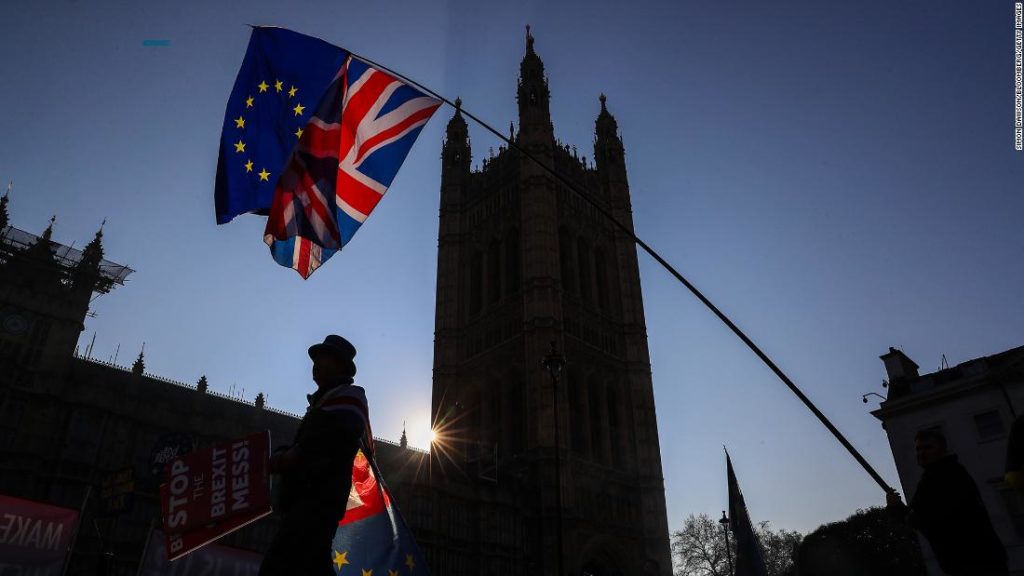UK companies are heaving a collective sigh of relief at retaining tariff-free trade with a market of 450 million consumers that buys more than 40% of Britain’s exports and provides more than half its imports. The country left the European Union on Jan. 31 but had continued to enjoy its previous trade privileges under transitional arrangements.
“The United Kingdom has chosen to leave the European Union and the single market, to renounce the benefits and advantages held by member states,” EU chief negotiator Michel Barnier told reporters. “Our agreement does not reproduce these rights and benefits, and therefore despite this agreement there will be real changes in a few days from now.”
“The good news is that a disruptive and acrimonious ‘no deal’ has been avoided,” JPMorgan’s Malcolm Barr wrote in a research note Thursday before the deal was finalized. “The bad news for the UK, in our view, is that the EU appears to have secured a deal which allows it to retain nearly all of the advantages it derives from its trading relationship with the UK, while giving it the ability to use regulatory structures to cherry pick among the sectors where the UK had previously enjoyed advantages in the trading relationship.”
Here are some of the major challenges facing the battered UK economy when the Brexit transition ends on Jan. 1.
Trade barriers
UK companies are losing unfettered access to the European Union. While a deal means that exporters have been spared the pain of having costly tariffs slapped on their goods, new import and export declarations alone will cost UK companies £7.5 billion ($10.3 billion) annually, according to Britain’s revenue authority.
While the government will phase in border checks over the coming months to avoid choking off vital supplies, truckers and transportation companies are among those warning of dire consequences. Rod McKenzie, head of policy and public affairs at the Road Haulage Association, told CNN Business earlier this month that supply chain hiccups could mean that factories aren’t able to work. There could also be “gaps on supermarket shelves,” he added.
“The clock is still very much ticking for businesses,” Jonathan Geldart, director general of the Institute of Directors, a lobby group, said in a statement Thursday. “Digesting what the changes mean in practice and adapting, in the middle of a pandemic and the festive season while border disruptions continue, is a huge ask.”
Worker shortages
Immigration was a key issue in the 2016 Brexit referendum. As an EU member, Britain was part of a bloc that allowed the free movement of people. That meant companies were able to easily employ EU citizens in sectors such as farming, social care and the National Health Service.
The number of EU workers coming to the United Kingdom has fallen sharply since 2016, and employers are worried about labor shortages, even though immigration from non-EU countries has been on the rise.
“Workers from outside the UK are absolutely vital to the success of our horticultural sector,” NFU vice president Tom Bradshaw told CNN Business last week. “We are at a critical time in recruitment for many growers. As freedom of movement ends on Dec. 31, [growers] still don’t know where they will recruit experienced workers from.”
Loss of investment
Years of uncertainty over the future terms of EU trade have already damaged the UK economy. GDP growth in the three years after the June 2016 Brexit referendum slowed to 1.6% as business investment stagnated, according to analysts at Berenberg.
“A deal [will] unlock significant investment in UK and support the recovery once the ongoing coronavirus shock starts to fade,” Berenberg economists told clients Thursday.
That may already be happening. Chinese investment across the whole of Europe has increased since the Brexit referendum but declined in the United Kingdom, said EY. Global banks have been moving some of their operations out of London to cities in the European Union.
Financial services snags
Worries that London would quickly lose its status as Europe’s financial capital to the likes of Frankfurt or Paris after the Brexit vote in 2016 have turned out to be overstated.
The European Union and United Kingdom have not yet struck a deal that will give UK banks and asset managers access to European markets. EU regulators are unlikely to let London keep the benefits of the single market without its obligations.
“While a deal is welcome, financial and related professional services are clear-eyed about the need for both sides to continue to develop the relationship in services in the years ahead,” Miles Celic, CEO of TheCityUK, said in a statement Thursday.
Some outside countries receive preferential market access rights from the European Union, a standard known as “equivalence.” The level of market access is worse than what the United Kingdom currently enjoys, but it’s the best the country can hope for once outside the European Union.
Major banks say they have prepared for Brexit, and the new terms of trade with the European Union won’t disrupt their operations while negotiations continue over equivalence.
You may also like
-
UK coronavirus variant has been reported in 86 countries, WHO says
-
NASA technology can help save whale sharks says Australian marine biologist and ECOCEAN founder, Brad Norman
-
California Twentynine Palms: Explosives are missing from the nation’s largest Marine Corps base and an investigation is underway
-
Trump unhappy with his impeachment attorney’s performance, sources say
-
Lunar New Year 2021: Ushering in the Year of the Ox

